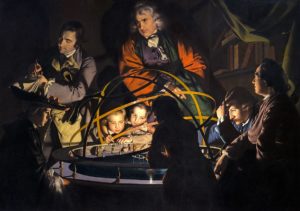 Humans have a complicated relationship with the stories they tell themselves. Sometimes they tell themselves stories to practice real-life situations, sometimes they go through “I should have said” scenarios either to improve or to wallow in their misery, and sometimes they tell themselves lies to make themselves feel better about something. And, of course, there are almost infinite variations.
Humans have a complicated relationship with the stories they tell themselves. Sometimes they tell themselves stories to practice real-life situations, sometimes they go through “I should have said” scenarios either to improve or to wallow in their misery, and sometimes they tell themselves lies to make themselves feel better about something. And, of course, there are almost infinite variations.
I am aware that I don’t fully understand this subject… I don’t think anyone does. But I know we do these things. I can point to beneficial instances and harmful instances, but I definitely don’t understand everything that lies behind them.
That said, I know enough to discuss certain instances of self-stories, and one of those is the clash between our stories and our choices.
“I Kind of Knew, But Did It Anyway”
One common type of human problem occurs when knew that we were about to make a mistake, but did it anyway. I think we’ve all experienced this.
Fundamentally the problem in these cases is mental inertia: that we’ve already begun moving in a certain direction and somehow can’t let ourselves be stopped.
One interesting thing about these processes is that our initial actions – or our commitment to those actions – not only want to continue, but somehow diminishes the realization that we’d do better by changing them. In other words, somehow our brains obscure inputs that go against our existing movements… that threaten our inertia.
I hope I’m making this clear. While these are universal experiences, they are also murky, and we don’t have a vocabulary that suits them.
So, a first problem is that our thought streams do not like to be interrupted. Perhaps that has something to do with energy consumption, perhaps it has to do with disliking self-contradiction, or perhaps it’s something else… or even a pallet of things. In any event, this something that happens to us.
It’s what happens next that is my subject for today. And that is justifying actions already in motion with concurrent stories.
The Story Makes It Okay
So, let’s follow the progress of the “I kinda knew, but did it anyway” mistake:
- We made a commitment to something and initiated it.
- We perceive (perhaps mutedly) that we should probably stop.
- Our ongoing stream of action doesn’t want to be interrupted. (I’m speaking metaphorically because I don’t know a better way to do this.)
At this point we are back to reasoning, rather than observing and reacting. In my experience there’s still some inertia and muting going on, but we’re at least referring to reason, and trying to decide whether to continue the action or stop it.
Usually one part of us really wants to continue the first action, but another part is demanding to consider it first.
This is the point where the story plays its role.
More than likely there was some type of story or narrative running while we made the initial choice, and more than likely it’s still running in the back of our heads. So, when we begin questioning the inertia of the original choice, the story (to use a pro wrestling metaphor) jumps into the ring and fights along with its partner.
If, then, reason must face off against not only inertia, but inertia’s partner also, reason usually gets tossed out of the ring. And thus most of us experience a long string of mistakes of this type.
How Do We Fix This?
The first and fastest fix for this is the title of this post: Once you sense this process inside yourself, stop and turn off the story; it’s competing unfairly. Cry foul and direct it out of the ring.
The crucial part in that is to recognize our inner processes. This is clearly not something beyond our ability – if you recognize this type of error, you’re recognizing such things already – but getting better at this would help us quite a bit.
It further seems that once you can say, “No story, not fair,” the entire inertia issue goes away, leaving you to reason freely.
So, that’s the first fix. It works, and it probably trains your inner processes to become more agile. I can’t be certain about that, but so it seems to me.
That’s probably the best we can do with this right now. Some day, some young psychologist will make a study of this and clarify it for us. After that, we’ll be able to deal with this more intelligently and directly.
But even now we have the ability to stop much of the damage: We notice what’s going on, tell the story that piling-on isn’t fair and to leave the ring, then make undisturbed choices… at the same time teaching our inner parts to get with the new program as well.
Finally, I should add that “first turn off the story” can apply very broadly, again going back to this post’s title: When making a hard decision, make sure that there’s not a story playing in the background and affecting your choice. Notice the story that’s running and turn it off. Make the decision clearly. I’m convinced that this can save you piles of trouble.
**
Paul Rosenberg
freemansperspective.com
